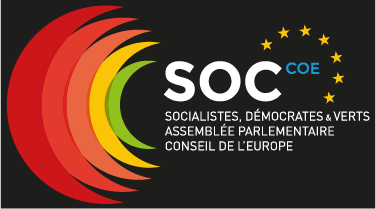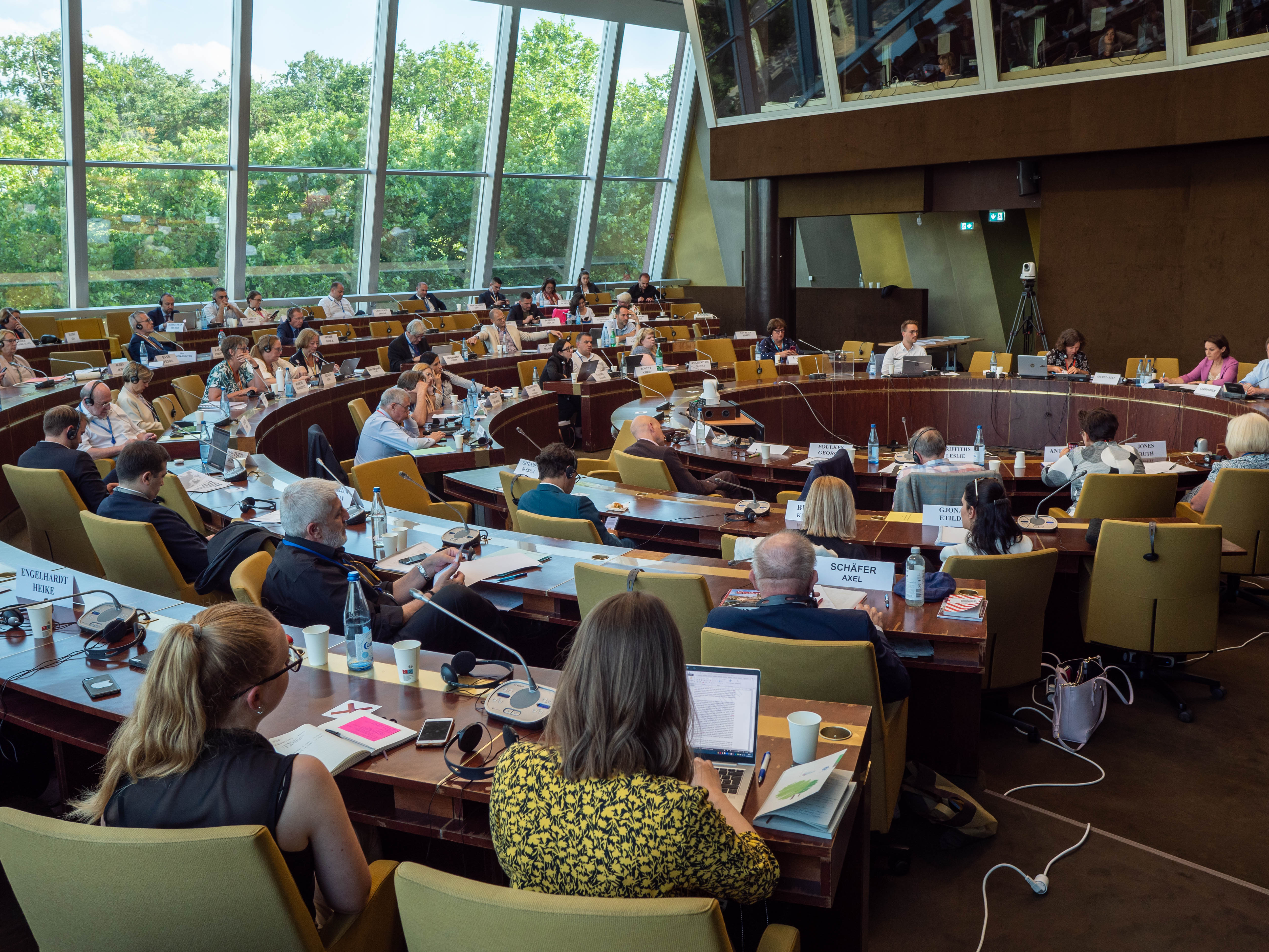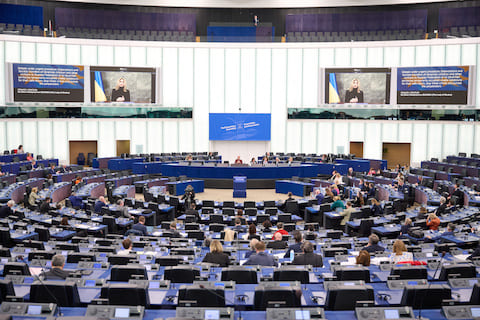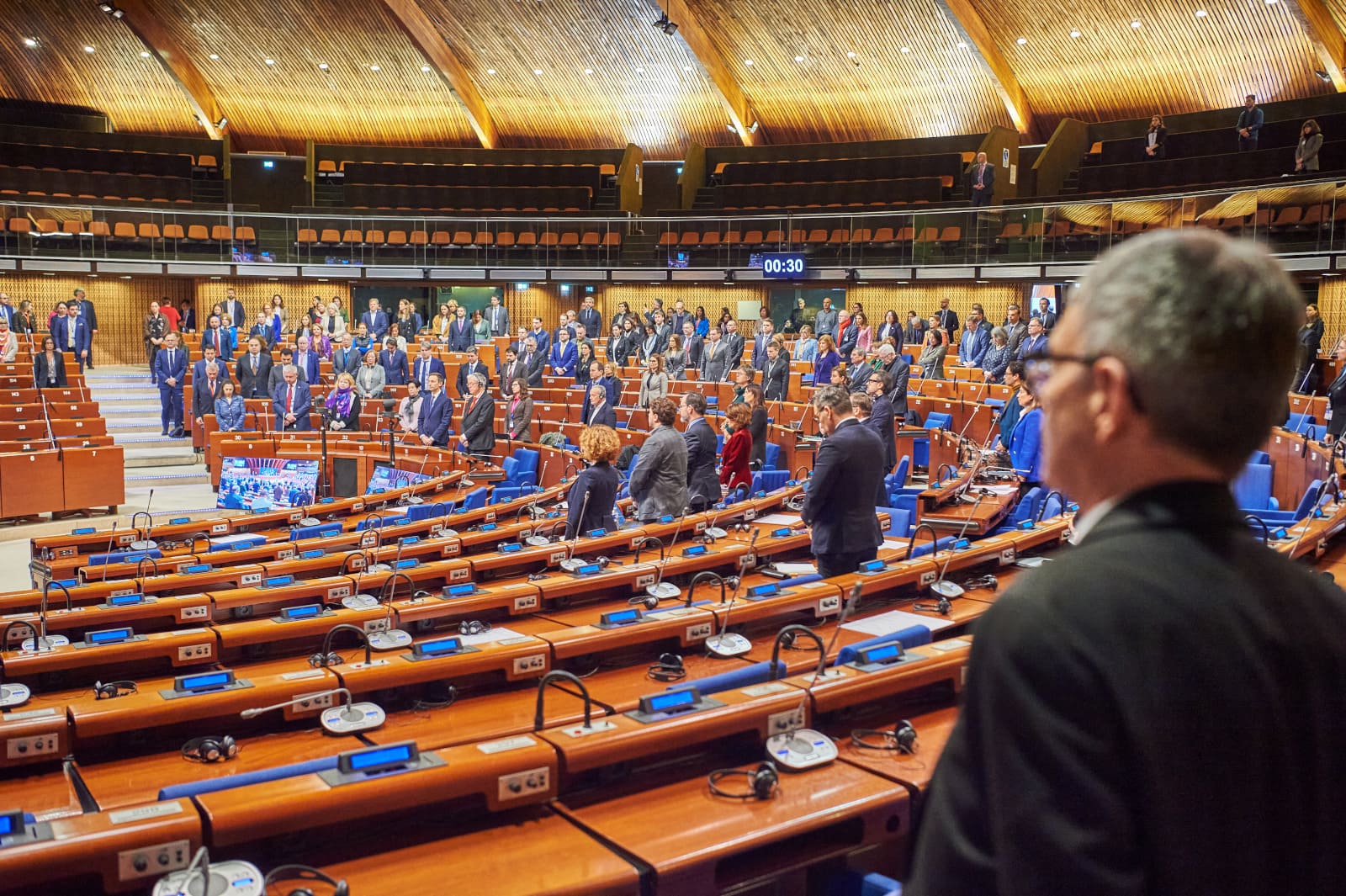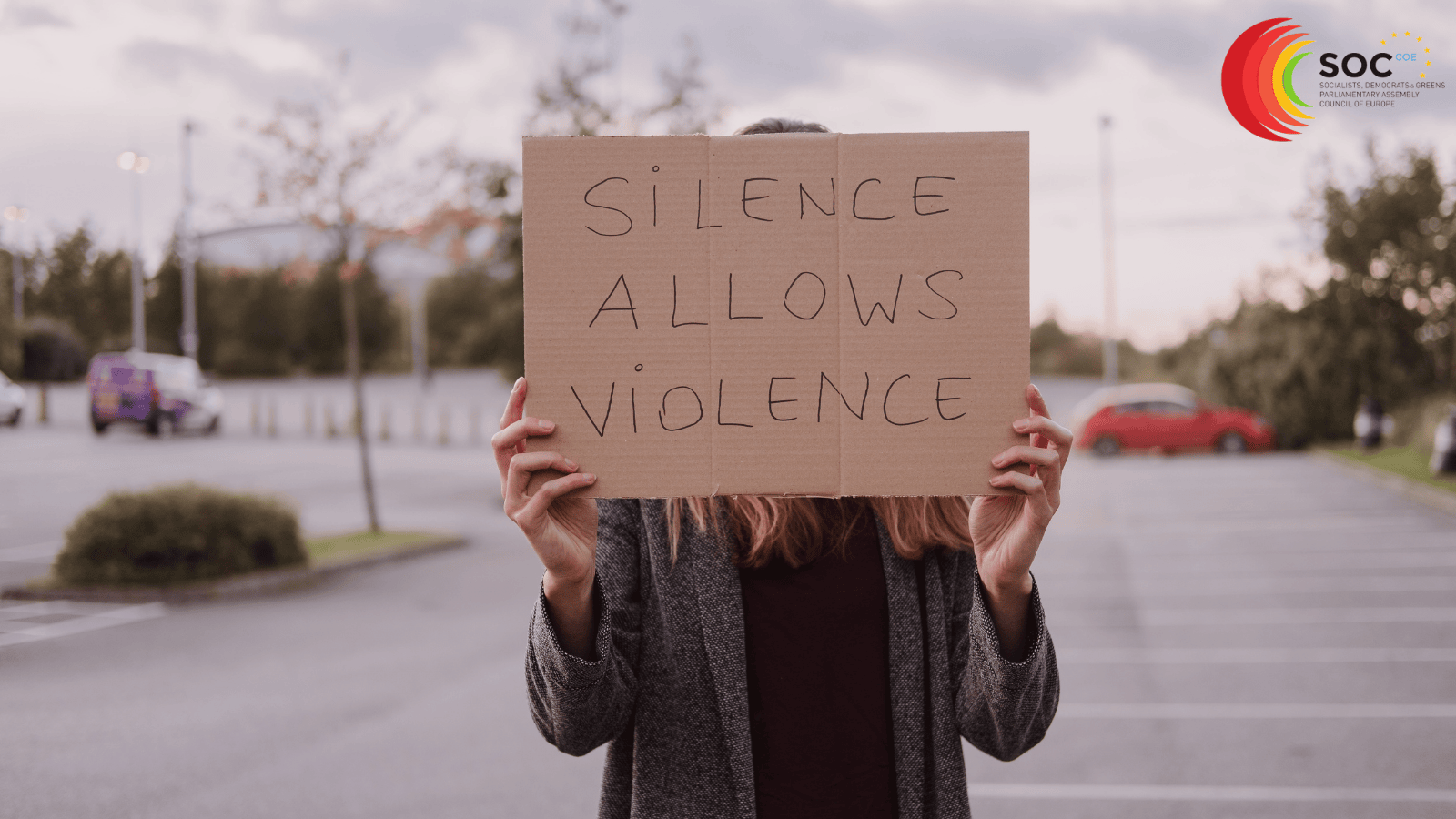
During its summer 2021 plenary part session, the Assembly celebrated the 10th anniversary of the Council of Europe Convention on Preventing and Combating Violence against Women and Domestic Violence (the Istanbul Convention) with a High-Level Panel on the topic. Moreover, the session was also an occasion to discuss other key themes related to Europe’s challenges for a democratic and transparent society, including media freedom, racism and xenophobia, the pandemic’s side effects on our socio-economic situation and clarity over donations to political parties.
Tweet
10 years of the Istanbul Convention
May 11th marked the 10th anniversary of the signing of the Istanbul Convention, which has been a crucial tool for the eradication of any form of violence against women and girls, and the protection of children. The document has been so far ratified by 35 member states of the Council of Europe and signed by 45. The event dedicated to the Convention, saw the participation of several key speakers, such as human rights activist Nadia Murad, the Prime Minister of Belgium, Alexander de Croo, the Romanian Senate, Anca Dana Dragu, the Minister Delegate for Gender Equality of France Elisabeth Moreno, the UN Special Rapporteur on violence against women Dubravka Šimonović, as well as the Secretary General of the Council of Europe Marija Pejčinović Burić. A lively and dynamic debate took place with parliamentarians from across all member States of the Council of Europe. The PACE’s General Rapporteur on violence against women, Zita Gurmai, concluded that “misconceptions and disinformation around the Convention should be combatted. Its only aim was to stop violence against women and domestic violence.” In her conclusions, she underlined that the debate “provided us with a great opportunity, not only to take stock, 10 years after the opening for signature of the Convention, of what has been achieved so far, but also to commit to further promoting it and supporting its implementation”.
The SOC Group strongly supports PACE’s reiterated effort to ensure a smooth implementation of the Istanbul Convention from all the Council of Europe’s member states and the ratification by all signatories.
Protecting citizens’ right to know
Disinformation and constant attempts to manipulate public opinion endangers the functioning of our democratic society and its values, causing a growing public distrust towards governing institutions. The SOC Group firmly welcomes the call for the recognition and effective safeguard of “the people’s right to know” expressed in the PACE’s resolution based on a report by Roberto Rampi (SOC, Italy).
According to the resolution, to protect the right to freedom of expression and information granted by the European Convention on Human Rights, “the Assembly should provide guidelines on the development of a set of mutually reinforcing instruments enabling an informed people’s participation to the public life of their communities.” However, the recent record of abstention noted during the regional elections in France, and the continuous desertion of interest in decision making and public debate, raises big concern.
Overcoming the threat to social rights posed by Covid-19
Besides causing a severe health emergency, the pandemic has deeply affected several sectors of our economy exacerbating pre-existing inequalities. The European continent is facing a deep recession and its negative effects are expected to last at least for some time, making the most vulnerable ones suffering the most severe consequences.
The SOC Group agrees with PACE’s resolution underlining the urgency of targeted measures to support vulnerable populations from the governments of European countries; “by shielding the most vulnerable people and businesses with social and economic policies, by containing outbreaks using tried and tested, effective public health measures, implemented in a human rights compliant way.”
Strengthening the integrity and independence of public decision-making
Recent data show increased illicit funding from foreign States or State-linked entities as a way to interfere in electoral campaigns in different European countries, undermining the overall integrity of the democratic decision-making process in our continent. This is due to loopholes in the current legal regulations governing financial contributions to political parties and electoral campaigns from foreign sources. In response, the Assembly will assess existing regulation in the Council of Europe’s member states, asking them “to implement maximum transparency and necessary regulation concerning donations from foreign donors to political parties and election campaigns.” The SOC Group fully upholds the need to act against inappropriate influence on national political and democratic processes.
Countering racism in Europe
Unfortunately, despite the existing anti-racism legislation, people of African descent and black Europeans are still discriminated against in many ways, including through the dissemination on the Internet of dangerous ideologies based on racial or national prejudice. Acknowledging the link between contemporary racism and colonial history, as well as recognizing Afrophobia, or anti-Black racism, as a specific form of racism is the first step in the right direction.
In this regard and due to the Council of Europe central role in countering racism in Europe, the SOC Group truly sustains PACE’s resolution on the necessity to “identify effective policy responses to issues including exclusion, negative stereotyping, prejudice, intolerance and discrimination against this group.”

